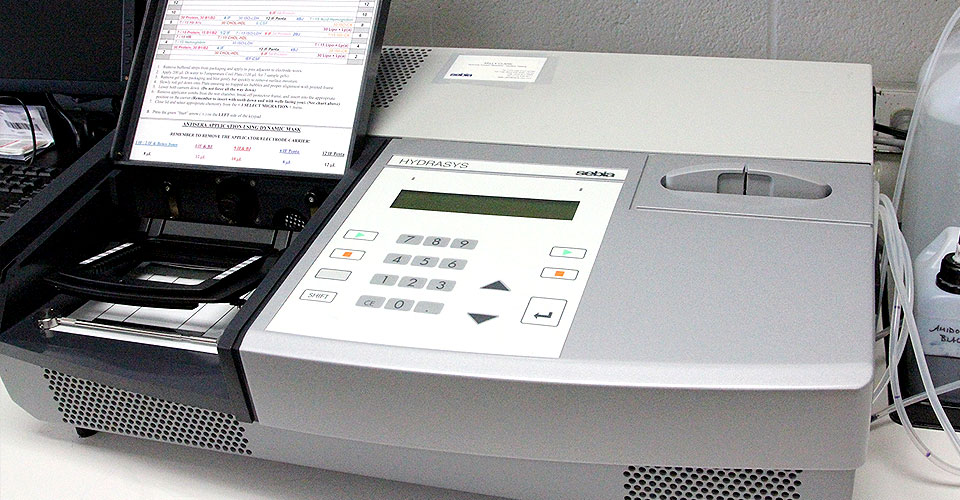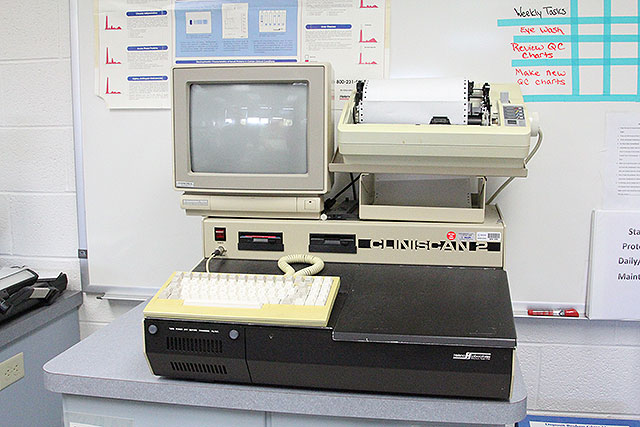

New equipment that allows UW-Stevens Point faculty to better teach students techniques and principles of electrophoresis has been installed in the School of Health Care Professions.

A Sebia Hydrasys Electrophoresis lab analyzer, purchased from Sebia, Inc. through a lab modernization grant, will be integrated into student labs for instructional purposes. Electrophoresis is a technique that allows medical lab technicians to differentiate and separate different plasma proteins in serum, urine and other body fluids. In addition, it is also used to diagnose different hemoglobin abnormalities known as hemoglobinopathies. Some diseases electrophoresis is used to aid in diagnosis are Multiple Sclerosis, Various hemoglobinopathies, Multiple Myeloma, Chronic Inflammation, Renal Disease, Liver Diseases and Hypergammaglobulinemia and Hypogammaglobulinemia.

“We are very excited to be able to bring this technology to our students and give them a realistic experience in performing and interpreting electrophoresis testing,” said Lecturer Mitch Rasmussen. “We were extremely fortunate to get this equipment at the price it was given to us. I had used this equipment while I was at St. Michael’s and used some contacts I had to inquire about the possibility to getting one for our students.”
This state-of-the-art technology will replace the very antiquated Helena electrophoresis equipment that was several decades old and in failing condition and very difficult to interpret results. It will be used in several clinical laboratory science classes including Hematology, Clinical Chemistry and Immunology.
Currently, UW-Stevens Point is the fourth educational facility to have a Sebia for student use. It is the same technology as is being used at medical facilities such as St. Michael’s Hospital, Marshfield Clinic, Mayo Clinic and St. Elizabeth in Appleton.
